Rwanda’s electric vehicle push has a faltering start
Known as the land of a thousand hills, Rwanda might not be the obvious place to launch electric vehicles.
The rugged, rural terrain would be tough on any car, but particularly models that have to lug around heavy batteries.
But Rwanda’s president Paul Kagame wants to transform the economy of the tiny, landlocked country.
A key part of the plan is to cut greenhouse gas emissions and reduce the nation’s dependence on imported fossil fuels, which account for 40% of the country’s foreign exchange expenditure.
So, the government has launched a range of incentives to encourage electric vehicles.
Electric cars, their spare parts, batteries and charging station equipment have been exempted from VAT, import and excise duties.
Meanwhile, electric vehicles can be charged at a heavily subsidised electricity tariff. The government also offers rent-free land for charging bays.
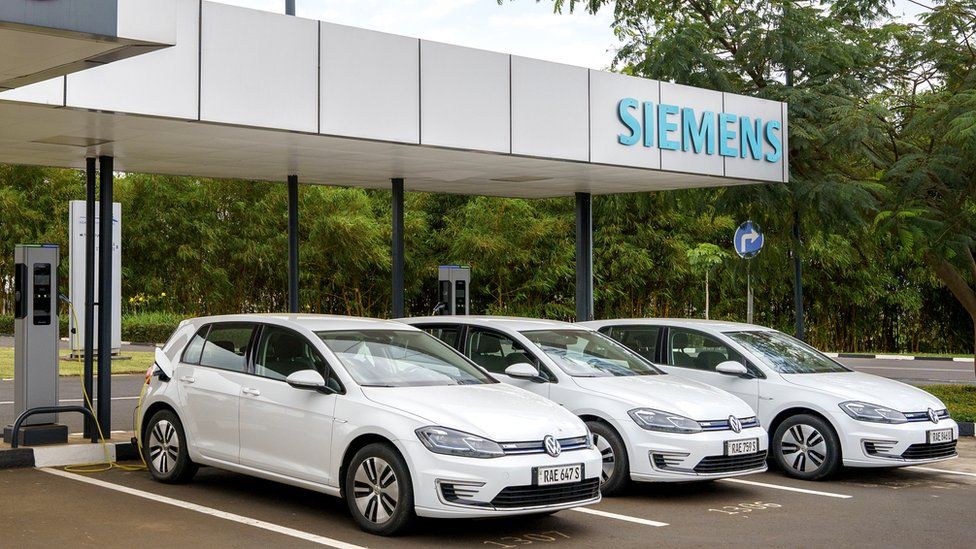
First proposed in around 2019, but held-up by the Covid pandemic, the incentives came into effect in April 2021.
Germany’s Volkswagen was one of the first beneficiaries of the government strategy. It launched the e-Golf model in Rwanda in 2019. The pilot project started with four of the cars and two charging stations in Kigali.
VW’s original plan was to expand the service to 50 cars and 15 charging stations, as part of its cab-hailing app called Move.
However, three years later, only 20 of the cars are on the road and they have been removed from the ride-hailing service. Instead they ferry customers from several high-end hotels, the international airport and the Kigali Convention Centre.
“The unevenness in road infrastructure and the height of speed-bumps turned out to be too challenging for the e-Golf, which has a relatively low ground clearance,” says Allan Kweli, head of operations at Volkswagen Mobility Solutions Rwanda.
There was particular concern about damaging the underside of the car, where the batteries are located.
Despite that misfire, VW remains optimistic about Rwanda. It is planning to import its ID.4 electric car, which has a higher ground clearance.
“The beauty of Rwanda is that the government has created a test scenario whereby you can prove your work in an African setup,” Mr Kweli says.
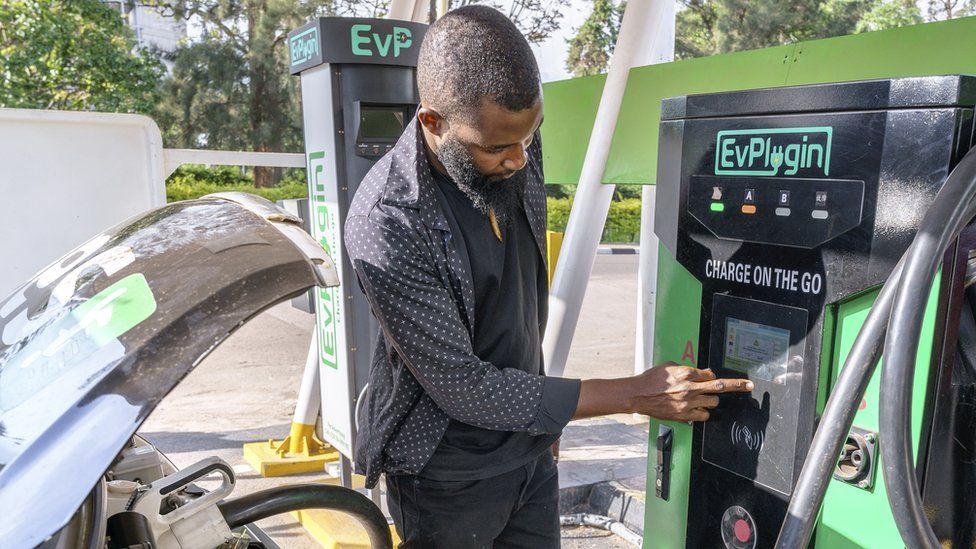
One glaring problem facing the carmakers is the lack of any charging facilities outside of Kigali.
In a developing country like Rwanda, it’s tough to justify large investments in a nationwide charging infrastructure.
Nevertheless, in partnership with the government and energy companies, Rwanda’s EvPlugin charging network is planning to build 200 public chargers across the country over the next two years.
Of those facilities, 35 will be suitable for cars while the others will serve electric motorbikes.
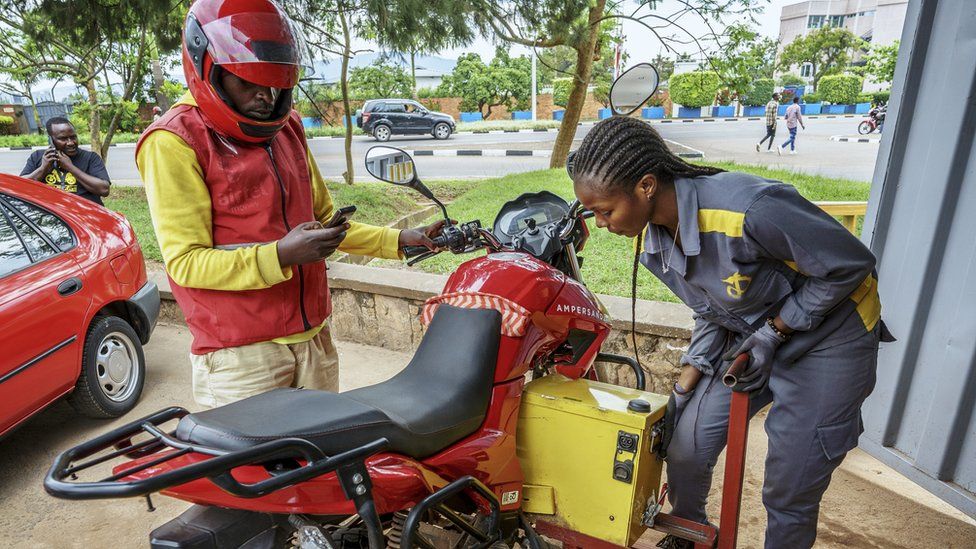
Japan’s Mitsubishi is dodging the problem by launching a petrol-electric hybrid car in Rwanda.
It has 135 of its Outlander cars on the roads of Kigali – 90 of which are leased, while the others are driven through a rental service.
“A hybrid vehicle eliminates the range anxiety as it can switch to gasoline, which is relevant as we are still far behind with charging infrastructure in Rwanda,” says Joshua Nshuti, from Greenleaf Motors, Mitsubishi’s official dealer in Rwanda.
He says demand has picked up recently.
“As fuel prices have increased by 60% in the last few months, we see a growing demand for the Outlander, as it gives clients the opportunity to half their fuel costs,” he says.
Critics question the positive environmental impact of the Outlander as, in hilly Kigali, it can only manage about 50km to 70km (30 to 44 miles) on battery power alone.
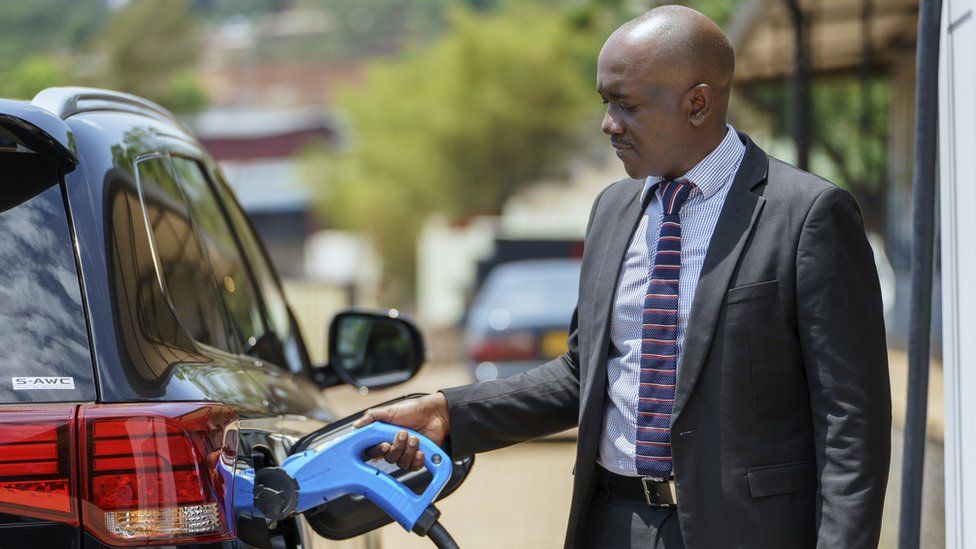
That’s not a problem for Paul Frobisher Mugambwa, who works for an international accountancy firm in Kigali. His leased Outlander runs mainly on battery power, for his short 7km commute between his home and the office.
He says petrol used to cost him $150 (£128) a month, but reckons charging his Outlander costs $40 a month.
Ideally, he would like to switch to an all-electric car, but worries about the lack of mechanics in Rwanda who would be able to service and mend such a car.
“If you buy an imported Chinese electric SUV, who is going to fix your car when it breaks down,” Mr Mugambwa wonders.
Perhaps the biggest obstacle to developing an electric car market in Rwanda is the expense.
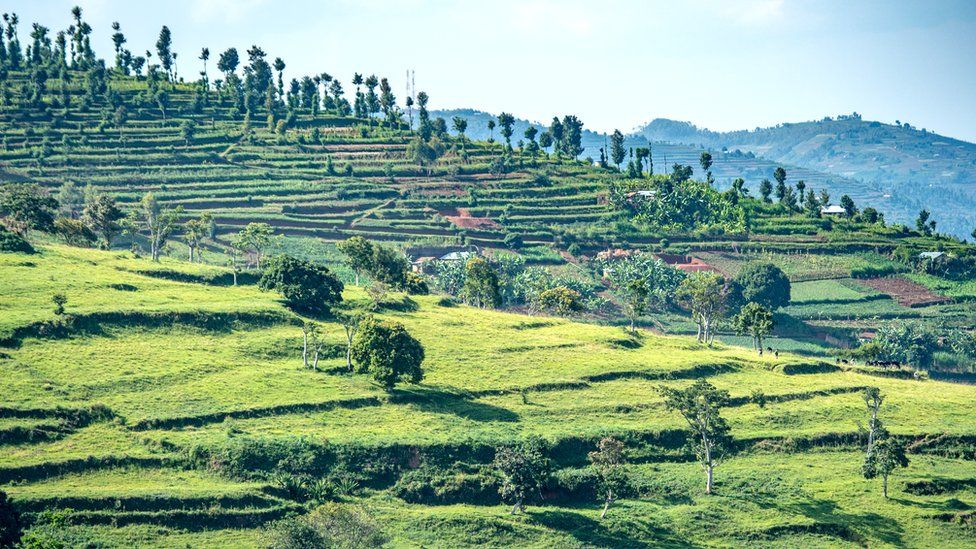
Although Rwanda has made economic progress over the last decade, about half the population still meets the UN’s definition of poverty – living on less than $2.15 a day.
While that makes owning an electric vehicle impossible, catching a ride on an electric motorbike is within the realms of possibility.
The company Ampersand has already managed to sell more than 700 e-motorbikes in Rwanda, where motor taxis are a very important mode of transport.
These so-called e-motos, with a battery swap system, are extremely popular, partly because they cost less to acquire and operate than a traditional motorbike.

Despite the challenges, many believe that Rwanda should push on with its electrification plans.
Michelle DeFreese, is a senior officer at Global Green Growth Institute, which assists the Rwandan government with training and advice regarding a plan for electric public buses.
She believes that Rwanda, which already produces 53% of its electricity from renewable sources, is in a good position to make the transition.
“The combination of transitioning to electric vehicles while investing heavily in renewable and clean energy resources is a powerful combination when it comes to reducing emissions,” she says.



